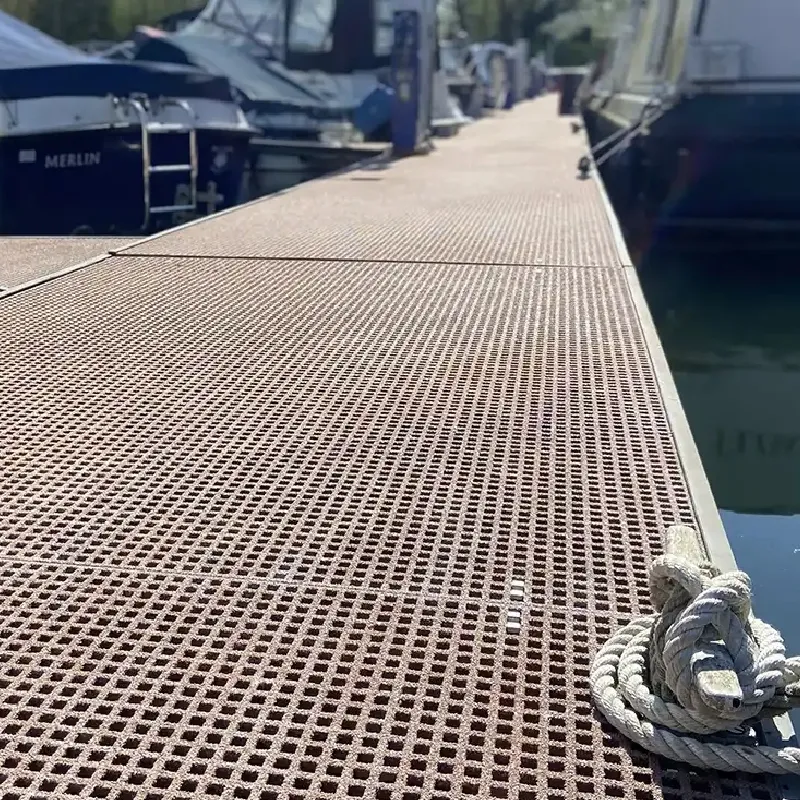loading...
- No. 9, Xingyuan South Street, Dongwaihuan Road, Zaoqiang County, Hengshui, Hebei, China
- admin@zjcomposites.com
- +86 15097380338
- Welcome to visit our website!
frp softener vessel
Understanding the Functionality and Importance of FRP Softener Vessels
In the realm of industrial water treatment, the use of Water Softener Vessels is a critical component in managing the quality of water used in various applications. Among the different materials used for constructing these vessels, Fiber Reinforced Plastic (FRP) stands out due to its unique properties which provide a robust solution for water softening processes.
What is FRP?
Fiber Reinforced Plastic is a composite material made of a polymer matrix reinforced with fibers, often glass or carbon. The primary characteristics that make FRP an ideal choice for softener vessels are its lightweight nature, high corrosion resistance, and significant tensile strength. These properties ensure not only the durability of the vessel but also its longevity even when subjected to harsh environments and aggressive chemicals typically found in water treatment processes.
The Softening Process
Water softening is the process of reducing the hardness of water, which is primarily caused by the presence of calcium and magnesium ions. Hard water can lead to a variety of issues, including scaling in pipes and appliances, decreased effectiveness of soaps and detergents, and higher energy costs due to inefficiencies.
The softening process typically involves the use of ion exchange, where hard ions in the water are exchanged for softer sodium ions. The water is passed through the FRP softener vessel that is filled with ion exchange resin. Over time, the resin becomes saturated with hardness ions and needs to be regenerated using a salt solution, which is another reason why the resilience and chemical resistance of FRP materials are so vital.
Advantages of FRP Softener Vessels
1. Corrosion Resistance One of the biggest advantages of FRP is its ability to resist corrosion, especially crucial in environments with high salinity or exposure to aggressive chemicals. Unlike steel, FRP will not rust or degrade, ensuring lower maintenance costs and increased operational efficiency.
frp softener vessel

2. Lightweight The lightweight nature of FRP vessels makes them easier to transport, install, and maintain. This is particularly beneficial in applications where weight is a critical factor, such as in portable water treatment plants or on-site water softening solutions.
3. Customizable Designs FRP production allows for customization in terms of size, shape, and structure. This flexibility enables the design of softener vessels that can fit specific operational requirements and spatial constraints.
4. Thermal Stability FRP materials exhibit good thermal stability, which means they can perform reliably in a range of temperatures without deforming or losing structural integrity. This feature is important when dealing with varying water temperatures through the softening process.
5. Cost-Effectiveness While the initial investment in FRP vessels may be higher than traditional materials, their long lifespan and resistance to damage can lead to significant savings over time. This cost-effectiveness is crucial for industries looking to maintain budgetary constraints while ensuring operational efficiency.
Applications of FRP Softener Vessels
FRP softener vessels are used across a variety of industries including
- Food and Beverage Ensuring the quality of water used in production processes. - Power Generation Maintaining boiler feedwater quality to enhance efficiency and reliability. - Textile Manufacturing Preventing scale formation in dyeing and finishing processes. - Healthcare Providing quality water for laboratory and sanitation processes.
Conclusion
In conclusion, FRP softener vessels are an essential component in the water treatment sector, offering unparalleled benefits in terms of durability, efficiency, and cost-effectiveness. By utilizing advanced materials like FRP, industries can ensure that they are not only addressing the challenges of water hardness but doing so in a manner that promotes sustainability and operational excellence. As water quality continues to be a crucial factor for many sectors, investments in technologies such as FRP softener vessels are likely to be a priority for many organizations looking to enhance their processes.
-
The Rise of FRP Profiles: Strong, Lightweight, and Built to LastNewsJul.14,2025
-
SMC Panel Tanks: A Modern Water Storage Solution for All EnvironmentsNewsJul.14,2025
-
GRP Grating: A Modern Solution for Safe and Durable Access SystemsNewsJul.14,2025
-
Galvanized Steel Water Tanks: Durable, Reliable, and Ready for UseNewsJul.14,2025
-
FRP Mini Mesh Grating: The Safer, Smarter Flooring SolutionNewsJul.14,2025
-
Exploring FRP Vessels: Durable Solutions for Modern Fluid HandlingNewsJul.14,2025
-
GRP Structures: The Future of Lightweight, High-Performance EngineeringNewsJun.20,2025
